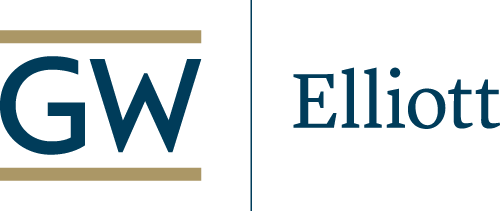
Patrick Finley is the Deputy Director of the Human Exploration and Operations Division in the Office of International and Interagency Relations at the National Aeronautics and Aerospace Administration (NASA), where he works to support current and future civil space cooperation between the United States and countries around the world, particularly in the field of human spaceflight. He holds an M.A. in Security Policy Studies from the George Washington University’s Elliott School of International Affairs and a B.A. in History from Missouri State University. As an undergraduate, Patrick interned with the Department of State at the United States Consulate General in Frankfurt, Germany. Prior to joining NASA, Patrick served as a foreign affairs analyst for the Missile Defense Agency, and as an analyst and staff assistant for the Department of the Army.
When did you realize you wanted an international career?
I always thought I would teach history, but one of my teachers told me I should I see a bit of the world before I try to teach anyone about it. As an undergraduate, my parents suggested I apply for an internship with the State Department. At the U.S. Consulate in Frankfurt, Germany, I worked for an exceptional Foreign Service Officer that inspired me to pursue an international relations career in service to my country. I will be forever grateful to Mr. Tom Hipp for the push, my parents for the perspective, and Mr. Jim Morris for the example.
Describe your current position and what new skills have you developed since starting?
I am the Deputy Director of the Human Exploration and Operations Division in the Office of International and Interagency Relations at the National Aeronautics and Aerospace Administration (NASA). It is my pleasure to support current and future civil space cooperation between the United States and countries around the world, particularly in the field of human spaceflight. Coming from a liberal arts educational background, I am consistently stunned at the diversity and depth of talents of the scientists and engineers at NASA, and I have spent six years developing my understanding of the complex technical programs in which they are engaged in order to more effectively encourage international partnerships that will support the agency’s missions. NASA programs have an incredible ability to appeal across national boundaries, and I have been given opportunities to engage with people and cultures with which I had limited previous experience. These engagements required I broaden my awareness of global affairs, economics, technology developments, customs, and cuisine – all worthy investments in your professional portfolio.
What part of your experience at the Elliott School best prepared you for your current position?
The best part about the classes I took at the Elliott School was how they were generally structured to prepare students for the real-world environment in which international relations professionals operate. I was pretty heavily oriented toward a government career, and I really benefited from classes taught by Adjunct Professors who spent their time during the day in offices at the Departments of State, Defense, Commerce, etc., and their evenings passing along knowledge to graduate schools students. Courses in writing or presenting information to Executive-level audiences were also especially helpful in retrospect. Additionally, the Elliott School has a tremendous network of relationships with organizations engaged in international work and I tried to attend as many information sessions, mock interviews, and site visits as possible.
What advice do you have for prospective students who are interested in pursuing a graduate degree in international relations?
International relations is such a broad and rich category of scholarship. I would recommend focusing your study and coursework regionally or functionally on an area(s) that excites you or in which you think there are important problems in need of solving. It is probably true in most walks of life, but in professional careers in international relations, it is invigorating to work on important or impactful issues. I have often found been able to lean on the inspirational nature of the work when I need to find that extra motivation required to dig in and work just a little harder.
How has virtual learning/working from home positively affected your work?
Virtual working has really shaken up the traditional paradigm of working in government, and I’m really enjoying all the time I’m getting to spend with my four-legged co-worker, my 13-year old pug-beagle mix named Ellanor.
Want to connect with current Elliott School students and alumni? Click here to see how!
Find out more about this program by creating a CustomViewbook!
Join us for an information session, RSVP here!
Click here to apply to the Elliott School!
Twitter · Facebook · Instagram
The #ElliottProud profile series is managed by the Elliott School Office of Graduate Admissions and highlights graduate program alumni to answer common questions posed by prospective, incoming, and current students. For more information on this series or to submit questions, e-mail the Office of Graduate Admissions at esiagrad@gwu.edu.
The views expressed by students profiled do not necessarily represent those of organizations they work for, are affiliated with, or the Elliott School of International Affairs.
